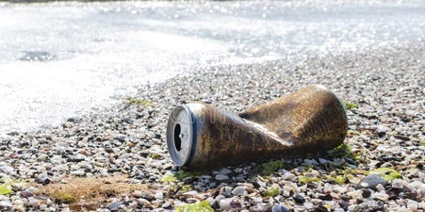An aluminum can takes an average of 10 years to decompose in nature. Over time, humidity and temperature convert aluminum cans, common packaging for beers, soft drinks and carbonated fruit juices, into iron oxide. After that, they need about 40 more years to fully degrade3. If the can were 100% aluminum, a highly recoverable material, it would take more than 100 years to disappear.
The decomposition process of an aluminum can is as follows:
When an aluminum can is left in nature, humidity and temperature turn it into iron oxide. This process can take about 10 years, depending on environmental conditions.
The iron oxide gradually disintegrates until it disappears completely. This process can take an additional 40 years3 , which means that an aluminum can can can take up to 50 years to fully degrade.
If the can were 100% aluminum, a highly recoverable material, it would take more than 100 years to disappear, as aluminum is highly resistant to corrosion and does not rust easily.
That is why it is important to recycle aluminum cans and prevent them from accumulating in the environment, where they can cause damage to fauna and flora. Recycling cans saves energy, reduces emissions and creates jobs. In addition, aluminum can be reused an infinite number of times without losing its properties.













